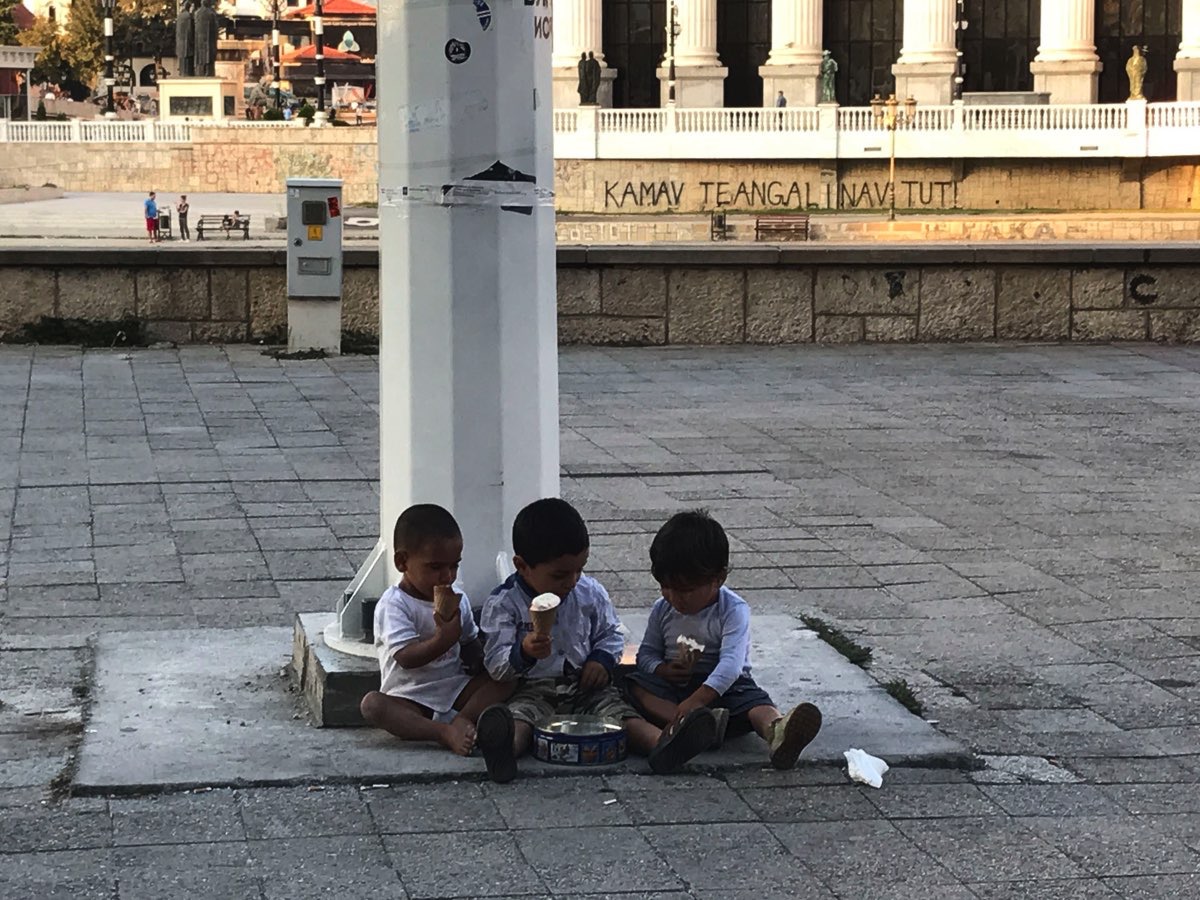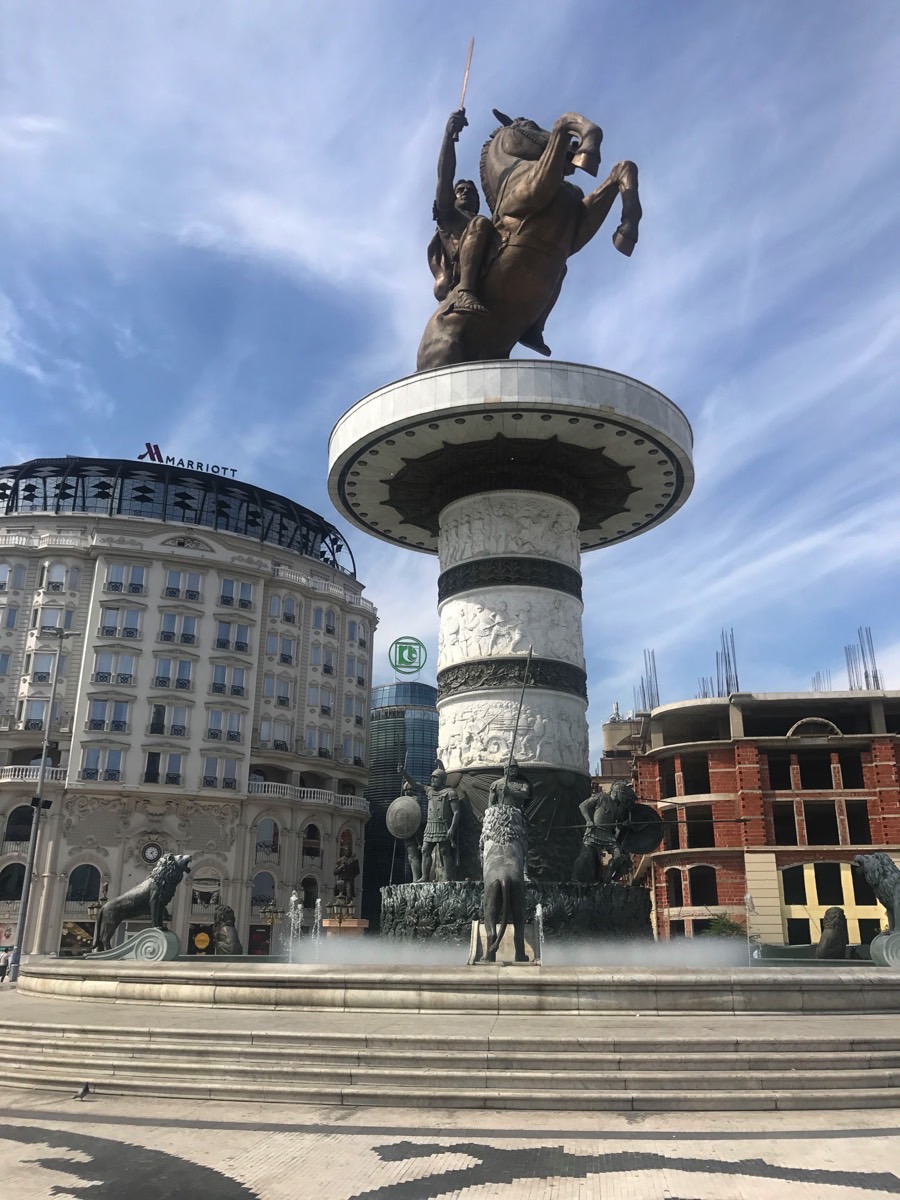MACEDONIA BEFORE THE REFERENDUM
A short visit of a delegation of the European Council for Foreign Relations to Skopje
An important compromise had been reached
Finally the two prime-ministers – of Greece and Macedonia – agreed on the difficult name issue. Greece blocked the advancement of Macedonia towards the EU and NATO – because it could not accept the name for its neighbor due to the fact that the northern province of Greece is also called Macedonia. Now the two leading politicians agreed on the official name „Northern Macedonia“. I always used the expression Macedonia instead of the official title „Former Yugoslav Republic of Macedonia“ or in its abbreviation form FYROM. So these artificial names would disappear and the country would be called officially Northern Macedonia. But for some in Macedonia this compromise was seen as unacceptable. They insisted on the self-chosen name Macedonia. The opponents in Greece on the other hand said that the negotiated compromise would have as a result, that people – in Macedonia and elsewhere – would just say Macedonia and „forget“ the adjective „Northern“.
My first contacts to Macedonia lead back to the end of the nineties. It was my first task in the Foreign Affairs Committee of the European Parliament to act as the rapporteur for the Stabilisation and Association Agreement between the EU and Macedonia. When I advised my colleagues to vote for it and especially when the interethnic conflict between Albanian and ethnic Macedonian broke out I was often called naive to think that Macedonia can develop to a modern democratic European country. But the agreement of Ochrid – a city in the south of the country at Lake Ochrid – could solve most of the conflict points. But the conflict with its neighbor Greece persisted in spite of many private Greek investments in Macedonia. So it was a great relief for the EU and its member states when the prime-ministers Zaev and Tsipras could agree on a compromise.
The Macedonian prime-minister Zaev had promised to change the constitution to make the deal fix. For that he needs a 2/3 majority in parliament. To gain that majority and to convince some members of the opposition to vote for the agreement he wanted a clear message from the citizens to the deputies. A referendum should give such a clear message. It would be „only“ a consultative referendum but it would need 50% of those in the voters list to be legally successful. Nevertheless, especially the prime-minister wanted to reach the threshold to send a clear unequivocal message to the parliament. But the opposition with many different opinions amidst themselves was neither supporting the agreement nor asked its voters to vote against. The leadership rather asked its voters to decide according to their personal attitude.
The visit of the ECFR
In this critical situation the European Council for Foreign Affairs whom I joined after I left the European Parliament sent a small delegation to support the agreement from a European perspective. In meetings with the prime-minister, the deputy prime-minister from the Albanian party, the foreign minister and with the vice-president of the opposition party VMRO we made our European perspective clear. We had also an interesting non-partisan public debate in which we pleaded to participate at the vote and for supporting the agreement. I tried to make it clear that there is no chance to get a better agreement – from the perspective of Macedonia. The opposition in Greece – Nea-Demokratia – rejected the agreement and according to all serious opinion polls it would be them who would form the next government. So there should be no hope for a „better“ agreement in the next years.
We argued also, that it would be very important to have a clear majority of all who would bother to participate at the referendum. The list of registered voters is highly overblown and full of citizens of the diaspora who are leaving outside the country for many years. So it would be very difficult to reach the quorum of 50%. Of course the higher the participation and the more yes votes for the agreement, the better it would be for convincing doubtful parliamentarians to support the agreement. But in the end neither the politically motivated boycott not the abstention out of disinterest should weigh too heavy.
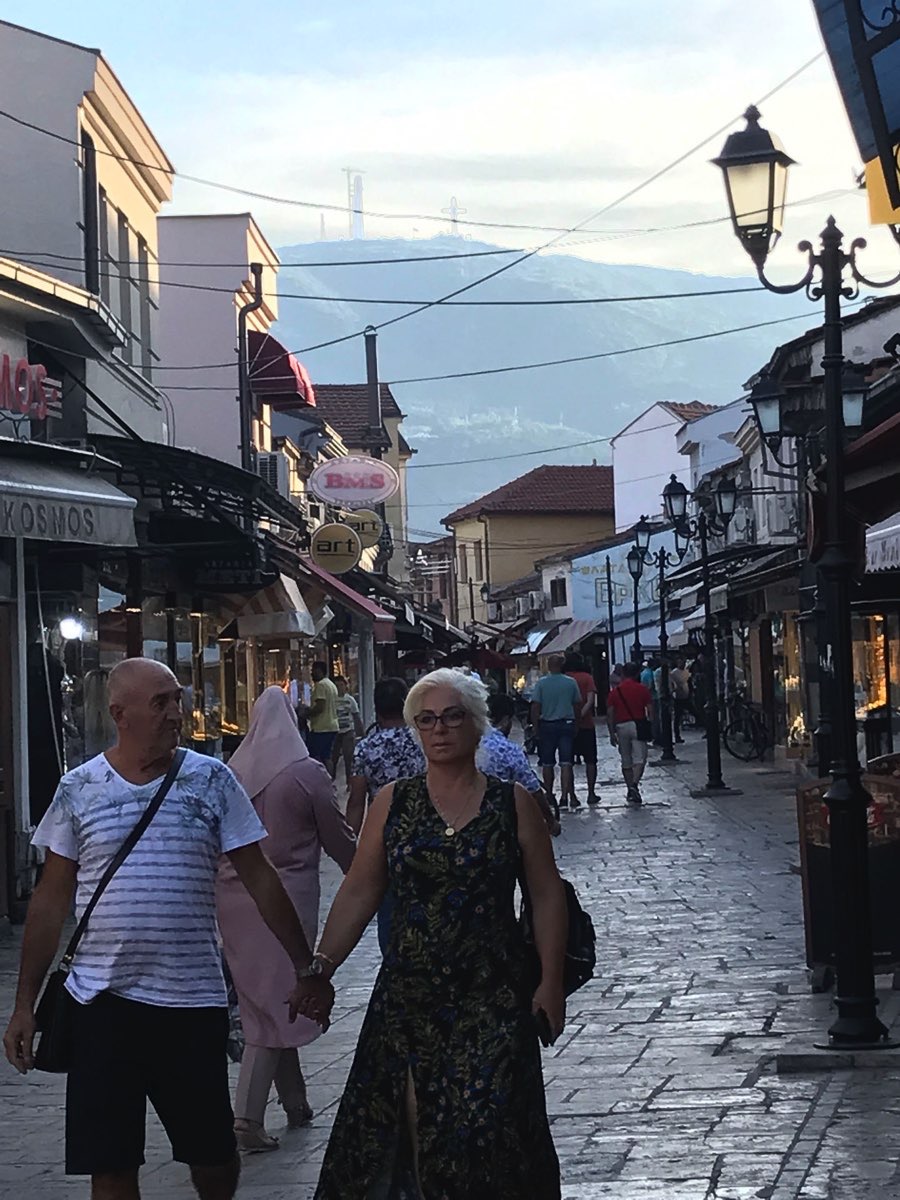
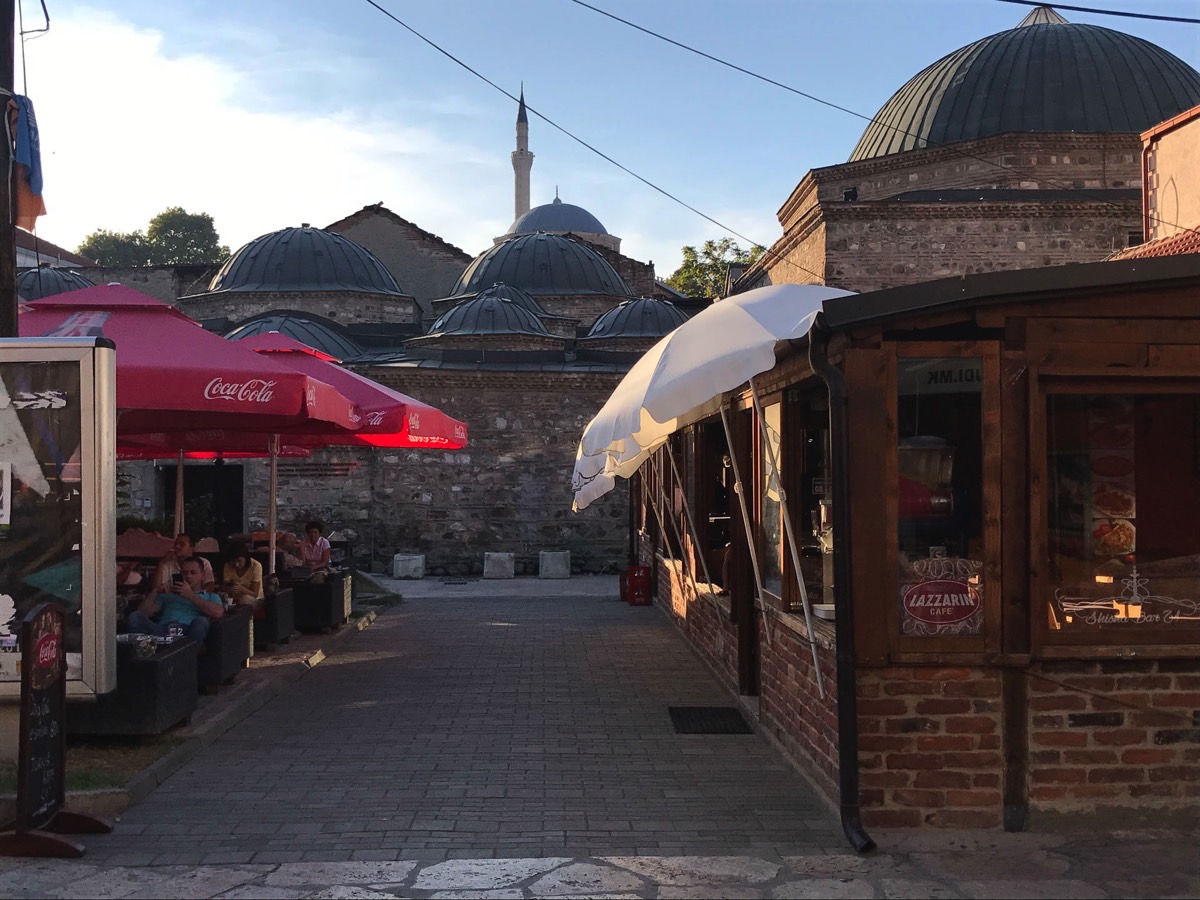
The interethnic conflict must be healed and a new path must be taken
One critical element is the ethnic difference in the voting pattern. The Albanian community will vote for the agreement very strongly. They have been especially angry, that the resistance of ethnic Macedonians – especially of the nationalist ones – against a compromise with Greece prevented over years the green light for starting (!) negotiations with the EU and joining NATO. But if a strong positive vote of the Albanians would be matched with a even small majority of no votes of ethnic Macedonians some of the latter could argue, that the Albanian community enforced on the majority of ethnic Macedonians a change of the official name and indirectly of their „identity“.
What is important is that the agreement on the name issue is helping to bring unity in the European aspirations – if nationalists do not misuse the different results between ethnic communities of political propaganda. But the referendum alone will not be enough to bring the two – and some more – ethnic groups together.
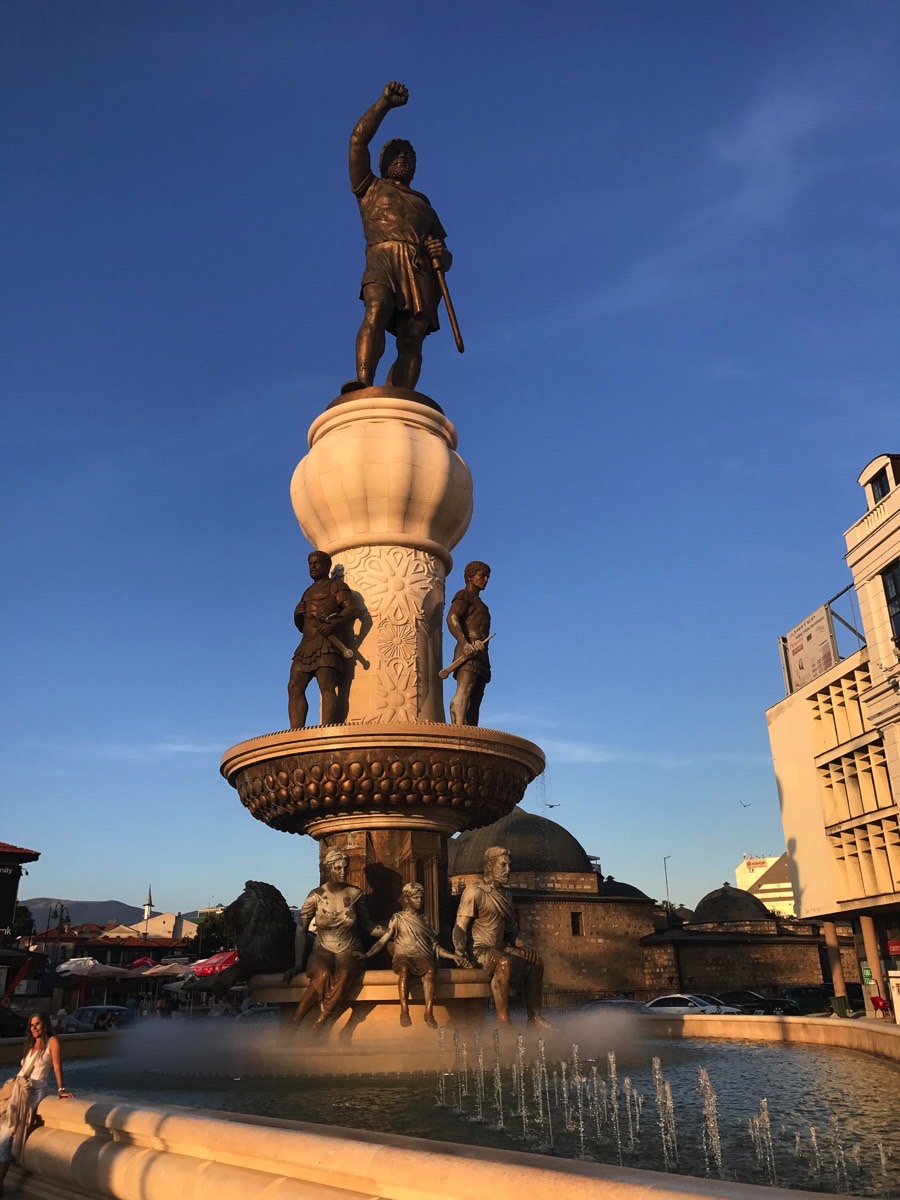
The stability of EU neighbors is important
A majority of yes votes at the referendum would be a clear internal and external vote for compromise, reconciliation and stability in the region. But there is still a long way to go for strengthening the cohesion of the country itself. Any visit in the country, especially in Skopje itself demonstrates the cleavages and separation between the communities. Right in the centre of Skopje exists an old „Albanian“ city with narrow streets, mosques and old trading houses. The former government with all its attempt to prove the historic importance of Macedonia as home of Phillip II and Alexander the Great build adjacent to the Albanian city a neo-neo classic city with enormous, oversized statues. The urban cleavages between the communities were not diminished but enhanced. Also the language and expressions for the two communities are a bit awkward. You have Albanians and ethnic Macedonians. But in the end both are Macedonians who need economic growth, jobs and security.
While the „West“ especially the European Union is very much interested in giving Macedonia support in this direction and is hoping for decisive steps toward reconciliation Russia has a different view. It is not a big player and actor in the country. But it was closely linked to the former government and is very critical towards the name compromise. It was also acting in Greece against it and the Greek government which is normally very friendly with Russia was forced to ask some Russian diplomats to leave the country. In Macedonia itself there are new small pro-Russian parties who seem to have the backing of the Russian government. Russia will not have a decisive impact on the outcome of the referendum but they are active in order to spoil at least for some time the path towards joint NATO. Some experts argue on the other hand it is not so much the interest of Russia to prevent Macedonia from joining as having a destructive influence once Macedonia became member of NATO. Anyway Russian opposition in Montenegro was not very successful and for now the same is true for Macedonia.
As mentioned a positive outcome of the referendum would be a clear expression of the wish of the Macedonians to be an integral part of the Transatlantic community, especially the European Union. But will the EU hear the message sent out by the Macedonians? The decision of opening accession talks with Macedonia – and Albania – was postponed to spring 2019. And of course both countries need to strengthen their willingness and capacity to reform. Everybody knows that the accession process needs a long way, but it would be necessary to start it if the EU would like to be taken serious with its determination to stabilize its south-eastern neighborhood.
